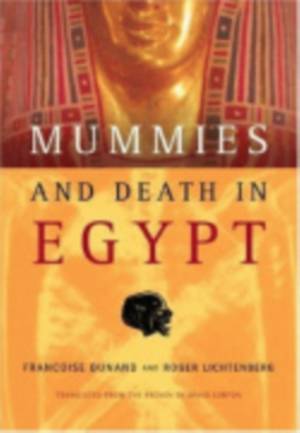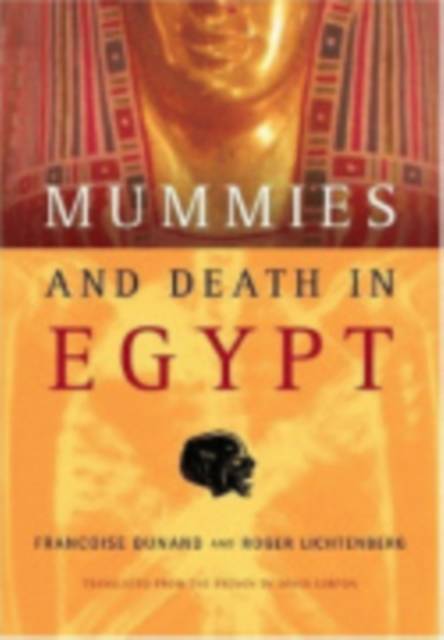
- Retrait gratuit dans votre magasin Club
- 7.000.000 titres dans notre catalogue
- Payer en toute sécurité
- Toujours un magasin près de chez vous
- Retrait gratuit dans votre magasin Club
- 7.000.0000 titres dans notre catalogue
- Payer en toute sécurité
- Toujours un magasin près de chez vous
Description
"Today, a good century after the first X-rays of mummies, Egyptology has the benefit of all the methods and means at the disposal of forensic medicine. The 'mummy stories' we tell have changed their tone, but they have enjoyed much success, with fantastic scientific and technological results resolving the mysteries of the ancient land of the pharaohs."--from the ForewordMummies are the things that fascinate us most about ancient Egypt. But what are mummies? How did the Egyptians create them? And why? What became of the people they once were? We are learning more all the time about the cultural processes surrounding mummification and the medical characteristics of ancient Egyptian mummies. In the first part of Mummies and Death in Egypt Françoise Dunand gives an overview of the history of mummification in Egypt from the prehistoric to the Roman period. She thoroughly describes the preparations of the dead (tombs and their furnishings, funerary offerings, ornamentation of the corpse, coffins, and canopic jars), and she includes a separate chapter on the mummification of animals. She links these various practices and behaviors to the religious beliefs of classical Egypt. In the second part of this book, Roger Lichtenberg, a physician and archaeologist, offers a fascinating narrative of his forensic research on mummies, much of it conducted with a portable X-ray machine on archaeological digs. His findings have revealed new information on the ages of the mummified, their causes of death, and the illnesses and injuries they suffered. Together, Dunand and Lichtenberg provide a state-of-the-art account of the science of mummification and its social and religious context.
Spécifications
Parties prenantes
- Auteur(s) :
- Traducteur(s):
- Editeur:
Contenu
- Nombre de pages :
- 256
- Langue:
- Anglais
Caractéristiques
- EAN:
- 9780801444722
- Date de parution :
- 15-11-06
- Format:
- Livre relié
- Format numérique:
- Genaaid
- Dimensions :
- 181 mm x 266 mm
- Poids :
- 739 g

Les avis
Nous publions uniquement les avis qui respectent les conditions requises. Consultez nos conditions pour les avis.






